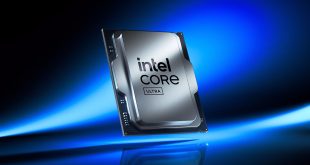ARM Holdings has announced that it had licensed its next-generation 64-bit code-named “Maya” general-purpose processing cores to three more companies. This means that the first system-on-chips based on ARM’s second-generation 64-bit architecture could hit the market sometimes in 2016 or even earlier.
“We have signed three licenses for Maya, our next-generation ARMv8 processor [in Q3 2014],” said Simon Segars, chief executive officer of ARM Holdings.
ARM started to license its code-named “Artemis” and “Maya” cores, which are the company’s second-generation processors based on the 64-bit ARMv8-A architecture, in the second quarter of 2014. The company has not disclosed the total amount of licensees for “Artemis” and “Maya” cores so far.
It is generally believed that the code-named “Maya” core will enable significant performance improvements over the existing Cortex-A57. The code-named “Artemis” core will most likely be ARM’s next-generation low-power core.
Typically, it takes ARM licensees about two years to create a system-on-chip based on a new core. Therefore, it is logical to expect the first SoCs based on the new ARM “Maya” cores in 2016. However, keeping in mind that “Maya” is now licensed by renowned chip developers who plan to build processors for servers (or powerful consumer applications), it is highly likely that they will shrink time-to-market from two years to something less.
ARM has not officially announced its “Maya” and “Artemis” cores to general public, all the details about the IP come from unofficial sources and market observers.
Discuss on our Facebook page, HERE.
KitGuru Says: Apparently, ARM’s partners seems to be a bit more aggressive with adoption of the company’s second-generation 64-bit ARMv8-A cores. Keeping in mind that 64-bit software for ARM is now available, new chips should be in demand.
 KitGuru KitGuru.net – Tech News | Hardware News | Hardware Reviews | IOS | Mobile | Gaming | Graphics Cards
KitGuru KitGuru.net – Tech News | Hardware News | Hardware Reviews | IOS | Mobile | Gaming | Graphics Cards



